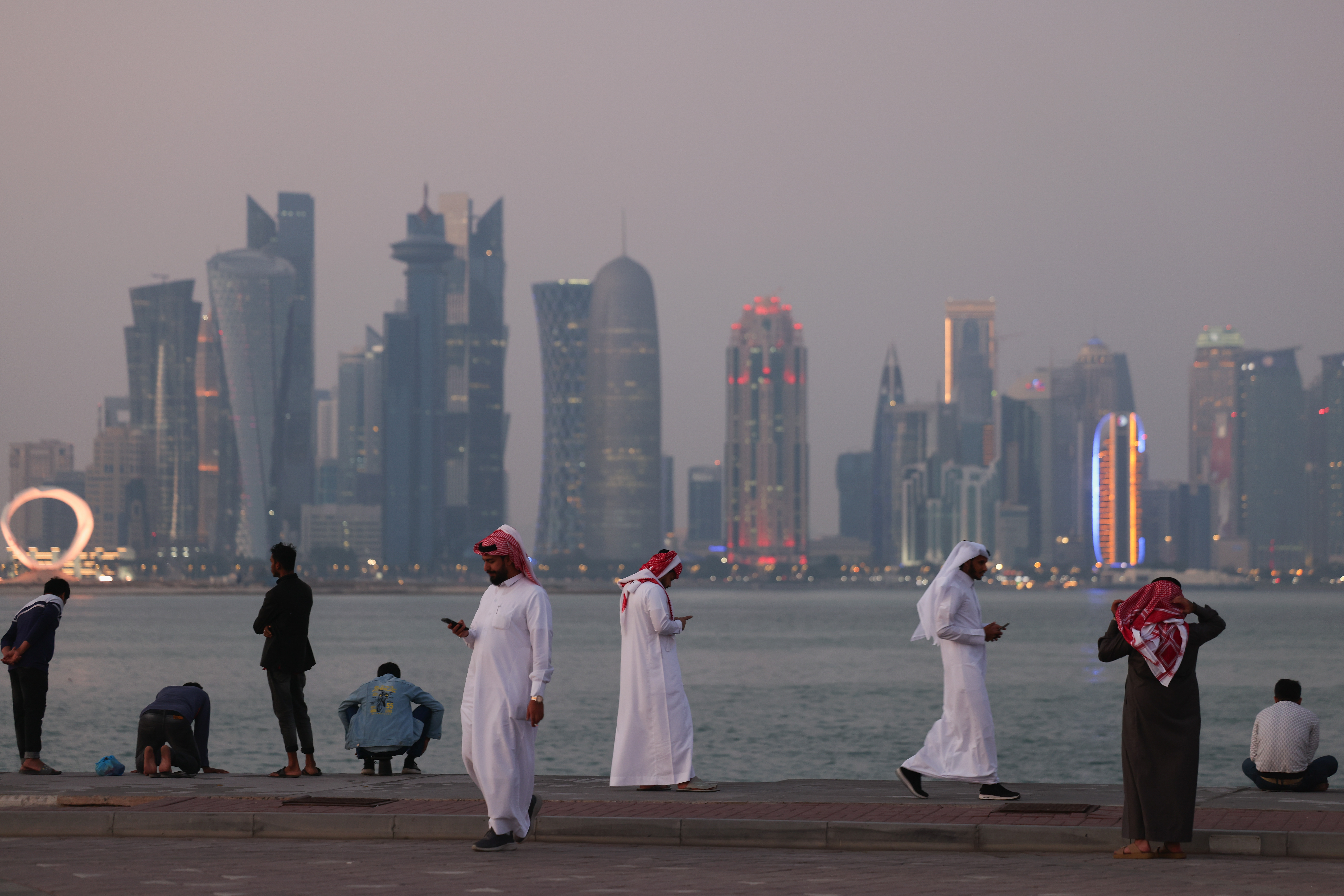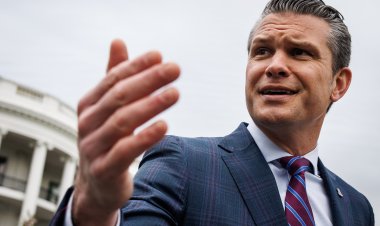Qatar Faces Trust Issues from Trump World
The relationship between the Gulf Arab state and the United States is complicated, with repercussions that extend from Gaza all the way to Texas A&M University.

In February, A&M’s Board of Regents voted to phase out the Doha campus, surprising hundreds of students, faculty, and other stakeholders in Doha who claimed the decision lacked adequate warning or consultation. The university's leadership cited a need to concentrate its resources domestically and pointed to the instability in the Middle East as reasons for the closure.
I question these explanations. The Qatar Foundation, a state-backed nonprofit, funds A&M’s operations alongside those of other U.S. universities within the state-of-the-art Education City. Additionally, the Middle East has long been associated with instability; A&M’s Qatar campus was established in 2003, coinciding with the U.S. invasion of Iraq. Qatar is considered a relatively stable country amid regional unrest.
Many believe that political pressures, particularly from Republicans who oversee Texas' public universities, drove the decision to shutter the campus, fueled by suspicion and misinformation regarding Qatar. Just weeks prior, a report from a group investigating antisemitism suggested that Qatar could leverage the A&M campus for access to U.S. national security research. Although A&M’s president criticized the report as “false and irresponsible,” the coincidence in timing prompted skepticism.
“At the end of the day, it’s politics and a lack of knowledge about this place,” Francisco Marmolejo, an official from the Qatar Foundation, explained when I inquired about the rationale for the closure.
I traveled to Qatar to gain insight into the geopolitical strategies of this small, yet immensely wealthy Gulf Arab state, especially with Donald Trump's upcoming return to the presidency. Some of Trump’s allies have historically supported an anti-Qatar narrative. The announcement of A&M's withdrawal took me by surprise and seemed indicative of the negative repercussions stemming from Qatar's diplomatic approach.
In essence, Qatar strives to maintain amicable relationships with various nations. It hosts representatives from Hamas and the Taliban alongside a U.S. embassy and military base, and even welcomes Israeli officials on occasion. This open-door policy positions Qatar as a key mediator in global conflicts, a central tenet of its foreign policy that grants it disproportionate influence.
However, this diplomatic stance invites scrutiny from the U.S., Israel, and others regarding its reliability as a partner. Critics argue that the U.S. should not rely on Qatar as a collaborator or mediator.
The monarchy-run nation has faced criticism for various issues, including its human rights record and the funding of U.S. think tanks, compounded by ongoing scrutiny over the past year amid Qatar’s mediation efforts concerning the Israel-Hamas war. Criticism has notably come from Israeli officials, including Prime Minister Benjamin Netanyahu, alongside pro-Israel activists and scholars.
In the last year, numerous U.S. lawmakers have urged the Biden administration to pressure Qatar to push Hamas toward agreeing to a cease-fire and freeing hostages. “Please make clear to Qatar that it will be held accountable for every hostage not brought home," one such letter stated.
Among those lawmakers are Sen. Marco Rubio, a potential secretary of State under Trump, and Rep. Mike Waltz, who is poised to become Trump’s national security adviser. Trump has appointed several other advisers who have strong ties to Israel.
While skepticism exists among Democrats regarding Qatar’s role, the majority of recent criticism has stemmed from the American right.
Qatar’s connections to Iran, with which it shares a significant gas field, as well as its ties to the Muslim Brotherhood have further tarnished its reputation in the West, while unsettling relations with neighboring Arab states that view these entities as threats.
In 2017, several Arab nations severed ties with Qatar, only to restore them in 2021. However, doubts remain among those nations regarding Qatar's intentions toward undermining their governments.
Qatari officials and supporters often dismiss these criticisms. They highlight that the U.S. previously accepted Hamas's presence in Qatar as a necessary communication bridge. Qatar also directed funds to Gaza during Hamas's governance, asserting that the financial support — estimated to total billions — was aimed at assisting Palestinians and that Netanyahu reportedly endorsed these payments to maintain peace in the region.
Critics, however, contend that Qatar’s financial contributions effectively funded Hamas’s terrorism, perceiving pressure on Qatar as a viable strategy to curtail Hamas.
When I queried Qatari officials about potential adjustments to their approach under Trump — aiming for a stance that would align more closely with the U.S., Israel, and against Hamas and Iran — I sensed a lack of urgency to change. Officials and analysts expressed hope that Trump’s aides would recognize the complexities of Middle Eastern dynamics once in office.
“Our partners and friends need an ally in the region who can speak to political actors whom they don’t directly engage with,” one Qatari official conveyed. I allowed anonymity for him and several others I interviewed to facilitate candid discussions on sensitive issues.
Qatar has a population of about 3 million, with only around 10 percent being citizens, and effectively operates under a small ruling elite. Signs suggest that the leadership is somewhat anxious about the impending Republican administration and its implications.
The emir and prime minister made efforts to engage with Trump even before the election, reportedly hosting at least one of Trump’s envoys to discuss Israel-Hamas negotiations, despite his presidency not yet commencing.
“Qatari officials are concerned,” noted Tarik Yousef, a Middle East analyst based in Doha. “They do expect, potentially, a backlash against the very mediation role that Qatar tried to play in the last year, and they do expect, especially with a total control of the political establishment by one party that is incredibly close to Israel, that this backlash could be really much more serious and significant.”
However, Majed Al-Ansari, the foreign ministry spokesperson, assured me that “Qatar’s engagement with the Trump transition team is going very well.”
“Every time we engage, we discuss the active files in various issues, the language is quite positive because they see the work,” he stated.
I was impressed by the number of current and former U.S. officials from both parties who lauded Qatar for addressing sensitive issues that others would avoid.
Qatar’s involvement has been critical in negotiating the end of the U.S. war in Afghanistan, facilitating resolutions to the crisis in Venezuela, and other roles that typically go unnoticed. Notably, after the Taliban takeover in Afghanistan, Qatar's Education City agreed to host the American University of Afghanistan, aimed at educating girls in Afghanistan who otherwise lack educational access due to the Taliban's restrictions.
“Qatar is a complicated country but in some ways it is the most straightforward and best ally in the region,” a senior Biden administration official remarked.
Another official familiar with Middle Eastern affairs mentioned that Qatar, which houses a significant U.S. military presence at Al-Udeid Air Base, has proven to be an excellent defense partner, seldom declining U.S. requests.
Nevertheless, the official acknowledged that when it comes to persuading Hamas, the Egyptians, rather than Qatar, are more inclined to apply pressure on the militants.
Some critics argue that the U.S. should bypass Qatar and directly engage with groups like Hamas if circumstances require it. The U.S. hesitates due to the political complications involved, but critics assert that depending on Qatar muddles signals sent to such groups.
“If Qatar is the only option, the U.S. is better off not relying on a middleman at all,” stated Ariel Admoni, an Israeli academic specializing in Qatar.
Trump’s views on Qatar have been contradictory, accusing the nation of financing terrorism, while reports suggest that his son-in-law Jared Kushner has substantial financial ties to Qatar, as do other Trump associates. One former aide indicated that despite “the anti-Qatar sentiment among some Trump people,” it is likely that the emir would receive an annual White House invitation during Trump’s presidency.
Yousef, the analyst from Doha, believes that Qatar must diversify its strategies moving forward. “You need to get closer to the Saudis. You need to get closer to the Emiratis, and you need to start taking the Asians much more seriously, including the Chinese,” he recommended.
However, a former Trump aide cautioned that any overtures toward China, particularly in cybersecurity and technology, could provoke Trump concerning Qatar.
Qatar has set boundaries it will not cross. It notably rejected the opportunity to reconcile with Syrian dictator Bashar Assad, electing instead to entrust embassy functions in Doha to Syrian opposition activists. As Assad faced potential ousting this month, Qatar convened several external parties with vested interests in Syria.
Qatari officials assert that mediation efforts are aimed at stabilizing a volatile region. Nevertheless, the broader implications of their multifaceted approach can resonate far beyond their borders.
During my visit to Doha, I attended a reception hosted by the Qatar Foundation, where I encountered individuals connected to the A&M campus, which will be phased out over four years due to contractual obligations. “It was a total shock,” commented one student regarding the closure announcement. “But what can you do? We have a beautiful family there.”
Qatari government officials did not respond to my requests for commentary on the A&M situation.
Criticism of Qatar is unlikely to diminish, whether based on truth or misconceptions. However, I would wager that Doha will endure.
Neither a Democratic nor a Republican government is poised to abandon Qatar. While it maintains relationships with numerous questionable entities, those entities are often the ones requiring engagement. Presently, Qatar has become an essential player in multiple arenas, making it challenging to substitute.
Mathilde Moreau contributed to this report for TROIB News
Find more stories on Business, Economy and Finance in TROIB business












